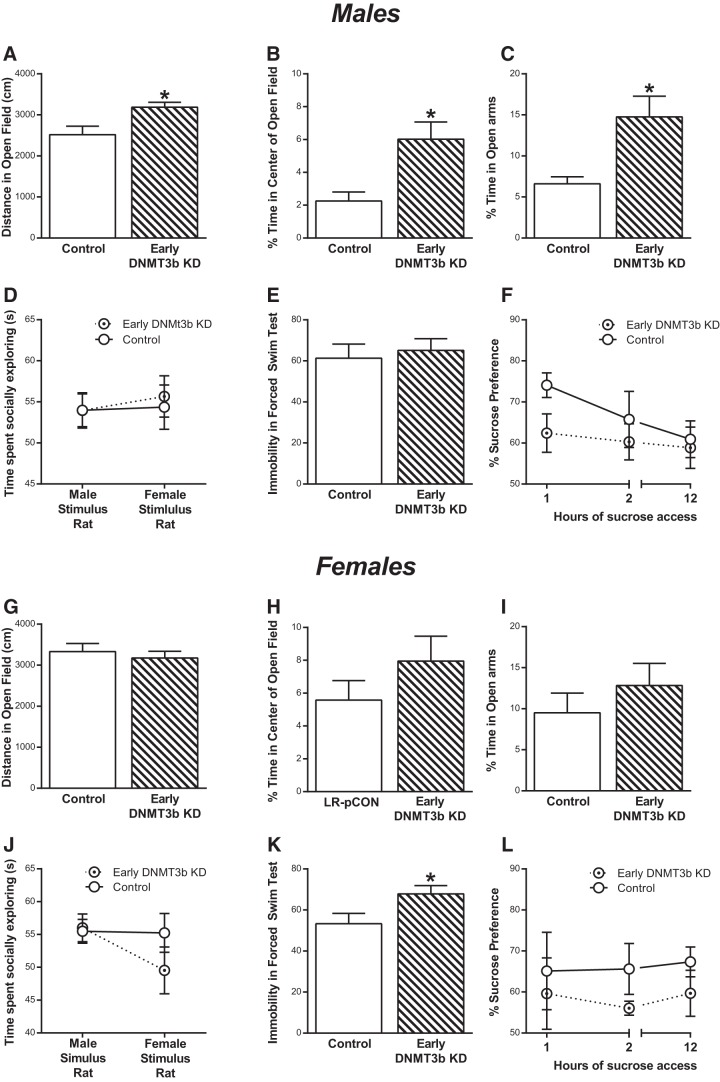Figure 5.
Transiently suppressing Dnmt3b expression in the developing amygdala leads to reduced anxiety-like behavior in adulthood. An siRNA was injected into the early postnatal amygdala to transiently suppress expression of the DNMT, Dnmt3b, to test whether this would lead to less anxiety- and/or depression-like behavior in adulthood (Dnmt3b siRNA: n = 15 males; n = 14 females; control siRNA n = 14 males; n = 15 females; A–L). A, In males, early-life DNMT3b knockdown (KD) leads to greater novelty-induced exploration in adult animals compared with controls. B, C, The siRNA Dnmt3b KD males also showed less anxiety-like behavior, spending more time in the center of the open field and more time in the open arms of the EPM. D–F, The early-life DNMT3b KD did not affect male rats' behavior in the Social Interaction Test, FST, or Sucrose Preference Test. G–L, Female animals were less affected by the transient early-life DNMT3b KD with the early DNMT3b KD females and control females displaying similar behavior across all tests, except increased immobility in FST. *p < 0.05 compared with control.

